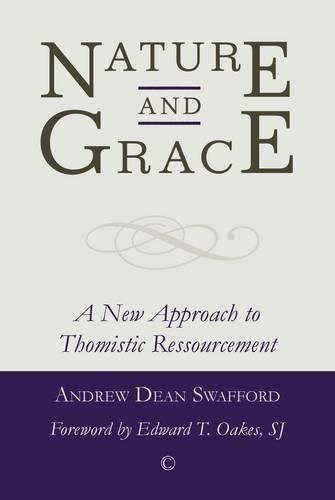Readings Newsletter
Become a Readings Member to make your shopping experience even easier.
Sign in or sign up for free!
You’re not far away from qualifying for FREE standard shipping within Australia
You’ve qualified for FREE standard shipping within Australia
The cart is loading…






Conventional wisdom has it that thinking on nature and grace among Roman Catholic intellectuals between the sixteenth century and the eve of Vatican II was severely clouded by the work of Cajetan and his fellow Thomistic commentators. Henri de Lubac has rightly been given credit for pointing this out; and to all appearances, de Lubac’s influence won the day, as can be seen by the imprint of his thought upon not just the Second Vatican Council, but also the pontifi cates of John Paul II and Benedict XVI. In recent years, however, a new crop of Thomistic scholars has arisen who question whether de Lubac’s word on nature and grace should be the last; hence, the debate over the nature-grace relation, so heated in the mid-twentieth century, has been stirred once again. Andrew Dean Swafford here offers a ‘third way’ by way of the nineteenth-century German theologian, Matthias J. Scheeben, who has been neglected in academic appraisals of the subject until now. Swafford shows that Scheeben captures the very best of both sides, while at the same time avoiding the characteristic pitfalls so often alleged against each.
$9.00 standard shipping within Australia
FREE standard shipping within Australia for orders over $100.00
Express & International shipping calculated at checkout
Conventional wisdom has it that thinking on nature and grace among Roman Catholic intellectuals between the sixteenth century and the eve of Vatican II was severely clouded by the work of Cajetan and his fellow Thomistic commentators. Henri de Lubac has rightly been given credit for pointing this out; and to all appearances, de Lubac’s influence won the day, as can be seen by the imprint of his thought upon not just the Second Vatican Council, but also the pontifi cates of John Paul II and Benedict XVI. In recent years, however, a new crop of Thomistic scholars has arisen who question whether de Lubac’s word on nature and grace should be the last; hence, the debate over the nature-grace relation, so heated in the mid-twentieth century, has been stirred once again. Andrew Dean Swafford here offers a ‘third way’ by way of the nineteenth-century German theologian, Matthias J. Scheeben, who has been neglected in academic appraisals of the subject until now. Swafford shows that Scheeben captures the very best of both sides, while at the same time avoiding the characteristic pitfalls so often alleged against each.